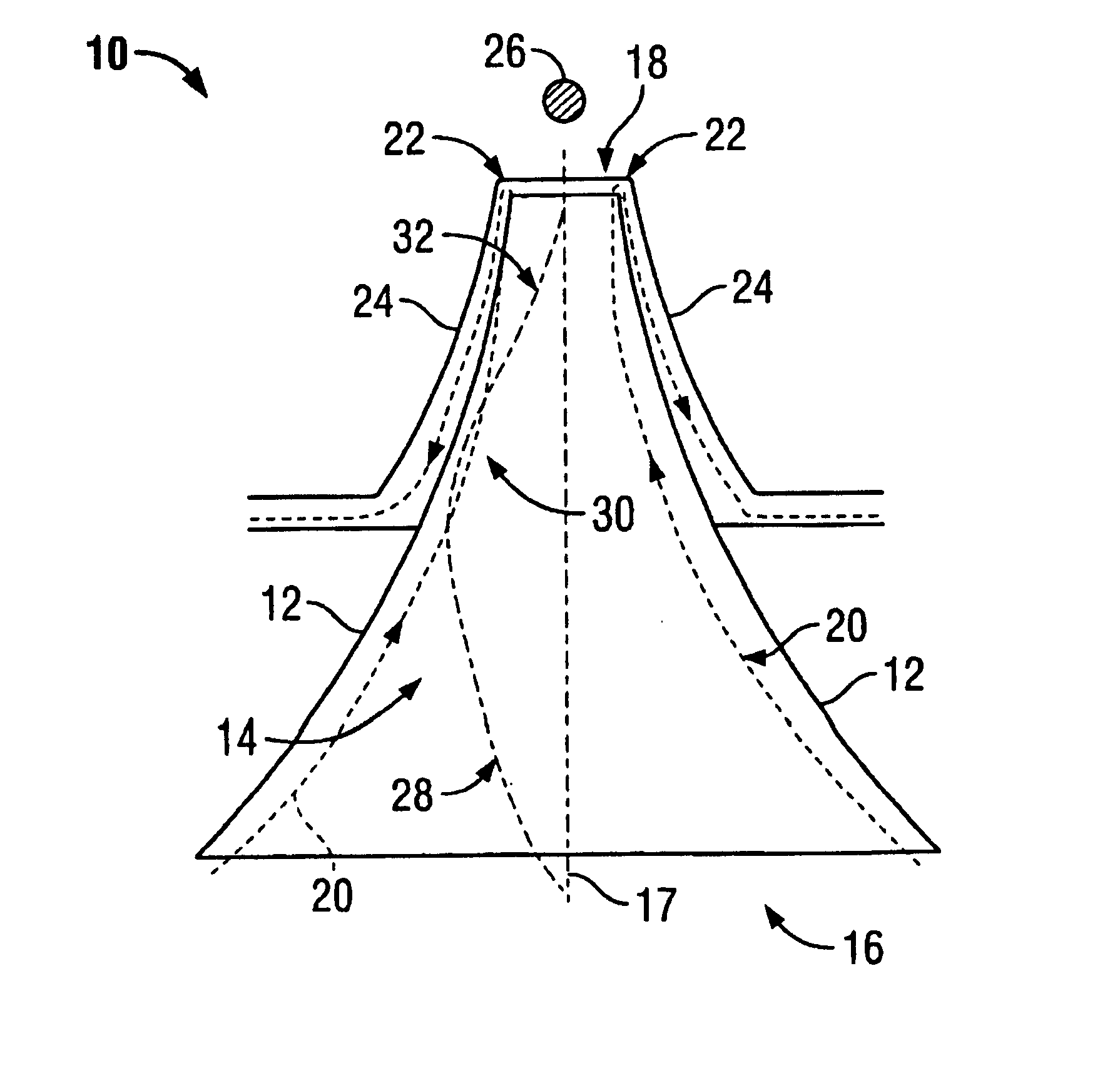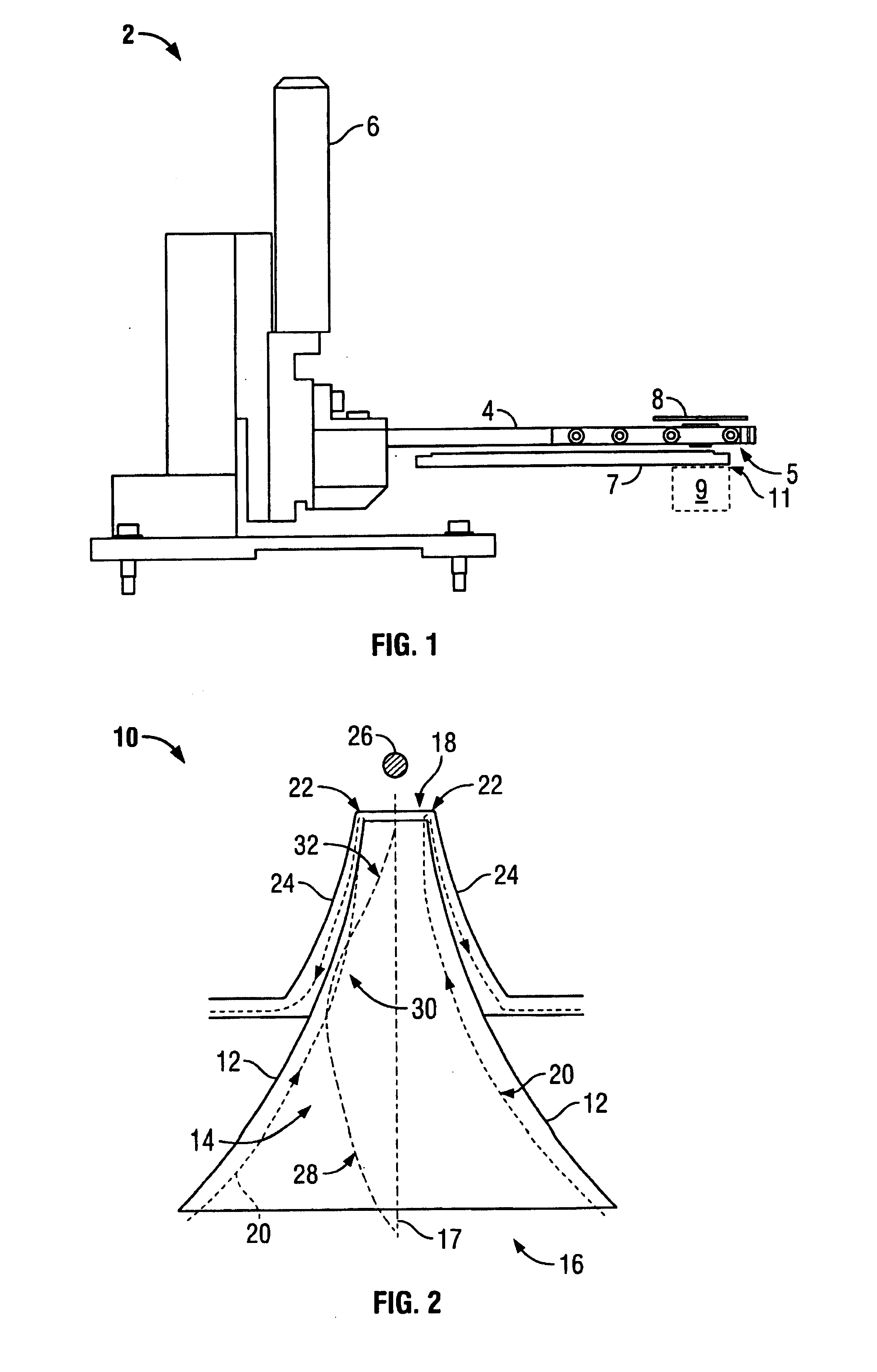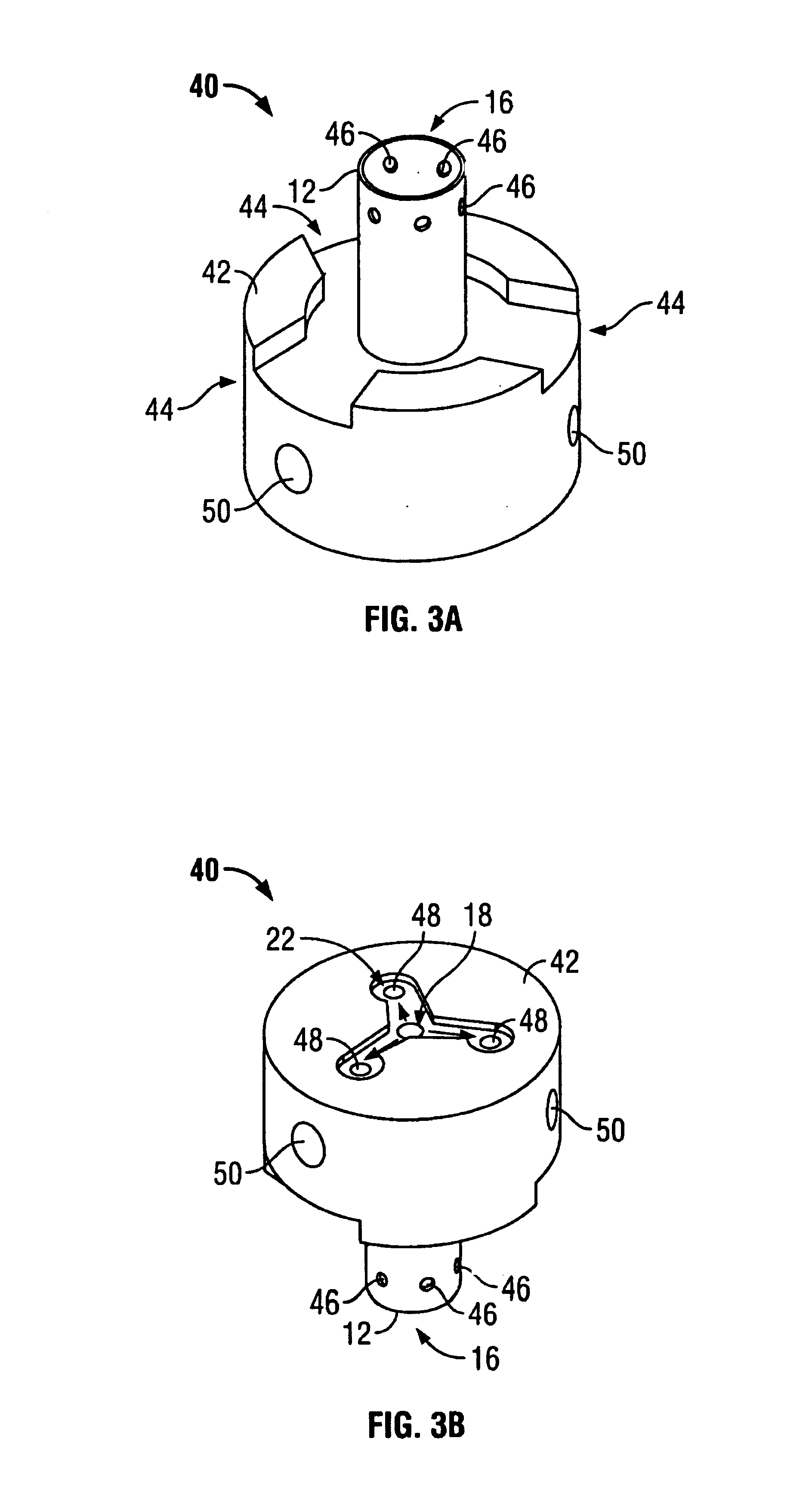Apparatus and method for droplet steering
a technology of apparatus and droplets, applied in the direction of electric spraying apparatus, burners, printing, etc., can solve the problem of longer flight times of ejected droplets
- Summary
- Abstract
- Description
- Claims
- Application Information
AI Technical Summary
Benefits of technology
Problems solved by technology
Method used
Image
Examples
Embodiment Construction
[0048]An apparatus and method for droplet steering, i.e., correcting or altering the trajectory of a droplet moving through free space, by utilizing directed fluid flow, e.g., gas flow, is disclosed herein. A representative schematic diagram of a non-contact fluid transfer system 2 is shown in FIG. 1. As seen, support arm 4 extends from a platform which may be manipulated via, e.g., z-axis adjustment assembly 6, over wellplate 7. Wellplate 7 may contain a single well or reservoir or it may contain numerous wells. Wellplate 7 may be a microwell in a conventional microtiter plate, which are made with a number of wells, e.g., 24, 96, 384, 1536, 3456, 6912, or any number combination source of wells. A droplet steering assembly 5, which operates according to the principles disclosed herein, is preferably located near the end of support arm 4 and over droplet generator 9. Steering assembly 5 is also preferably disposed beneath or adjacent to a targeting medium 8. As applied throughout, an...
PUM
 Login to View More
Login to View More Abstract
Description
Claims
Application Information
 Login to View More
Login to View More - R&D
- Intellectual Property
- Life Sciences
- Materials
- Tech Scout
- Unparalleled Data Quality
- Higher Quality Content
- 60% Fewer Hallucinations
Browse by: Latest US Patents, China's latest patents, Technical Efficacy Thesaurus, Application Domain, Technology Topic, Popular Technical Reports.
© 2025 PatSnap. All rights reserved.Legal|Privacy policy|Modern Slavery Act Transparency Statement|Sitemap|About US| Contact US: help@patsnap.com



